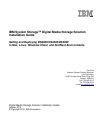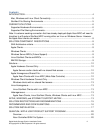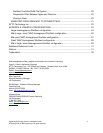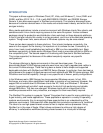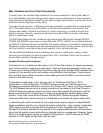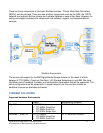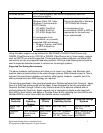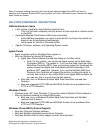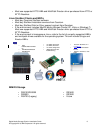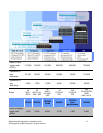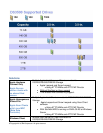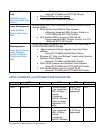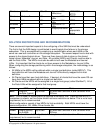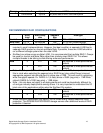Digital Media Storage Solution Installation Guide 4
© Copyright 2010, IBM Corporation. All rights reserved.
INTRODUCTION
This paper outlines support of Windows Client (XP, Vista, and Windows 7), Linux (RHEL and
SUSE) and Mac (OS X 10.5 – 10.6.x) with IBM DS3000, DS4000, and DS5000 Storage
Servers. It also discusses support in StorNext environments. The solutions discussed arose
because of customer demand seen in the media and entertainment industry and within the oil
and gas industry.
Many media applications include a mixed environment with Windows clients, Mac clients, and
sometimes even Linux clients requiring access to the same file system. Various software
packages along the production and distribution chain work best on these disparate platforms.
In the oil and gas industry this variety is not as prevalent, and Linux is the dominate operating
system. Though even here, some amount of Windows systems may be encountered.
There are two basic aspects to these solutions: One is basic hardware connectivity, the
second is the support for file sharing. It’s important not to confuse the two. Connectivity to
many Linux hosts is well established and outlined in IBM’s on-line compatibility tool. Basic
hardware connectivity to Apple and/or Windows Client hosts is now also outlined on IBM’s on-
line compatibility tool. The second aspect is File sharing with Quantum’s StorNext software.
This is also supported, but because of the added complexity requires very specific
configurations.
The storage offerings in Apple environments in the past have been poor. The now
discontinued Apple X-RAID storage products were never very highly regarded and neither is
the current Promise storage. There has long been a desire to have simple and supported
deployable solutions with StorNext and IBM DS Series Storage. In particular, there has been a
strong demand for support of Apple servers and work stations with IBM DS series storage. IBM
DS series now has that capability, through a very specific set of known, quality configurations.
In the Windows realm, IBM Storage has long supported Windows servers. In fact, SQL,
Exchange, and many other applications have been a mainstay of our business. However, this
support did not extend down to Windows clients like XP, Vista, and Windows 7. Windows
clients, it was believed just didn’t need access to the kind of high performing and reliable
storage IBM offers. This has now changed. Windows clients are an integral part of the
workflow processes within many industries, and support for them was clearly required.
The StorNext File system is a popular “shared” file system that is used for many publishing, oil
& gas industry, and media applications. These applications operate in a variety of operating
systems environments. Key to recognizing these opportunities is an understanding of the
customer environment. Customers will often describe their production systems as a “workflow”.
The idea is to use high speed shared access to files to impose various processes. Using
StorNext (or in the case of Apple, XSan) allows customers to achieve a high degree of
efficiency in collaborative workflows allowing shared access to a virtual pool of storage



